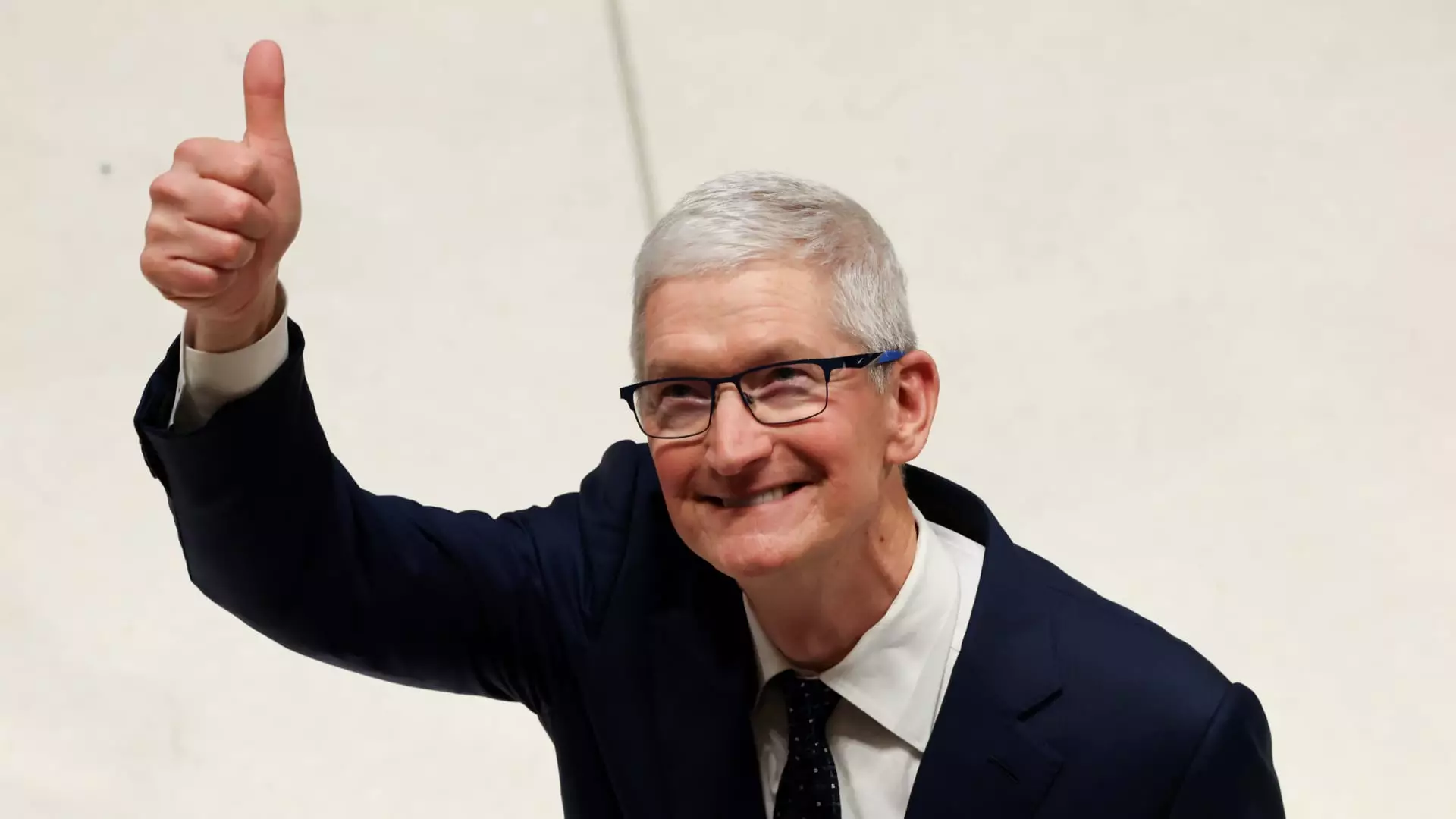In a decisive move, Apple has successfully challenged the U.K. government’s attempt to suppress details surrounding its appeal regarding the creation of a “backdoor” for accessing iPhone users’ data. This pivotal moment not only highlights the tech giant’s staunch defense of user privacy but also poses critical questions about the balance between national security and individual rights in the digital age. The outcome of this case has resonated far beyond the boundaries of the courtroom, rekindling the global conversation about encryption and governmental overreach.
Judicial Shield for Open Justice
In a noteworthy ruling handed down by the U.K.’s Investigatory Powers Tribunal, judges Rabinder Singh and Jeremy Johnson delivered a clear message: transparency trumps secrecy, especially in matters of public interest. Their outright dismissal of the government’s plea to keep court proceedings confidential underscores the judiciary’s role as a guardian of open justice. They asserted that conducting hearings shrouded in secrecy would represent “the most fundamental interference” with established democratic principles—a statement that resonates with advocates of civil liberties who believe that oversight and accountability must never be compromised.
Implications of the ‘Backdoor’ Access
At the heart of the issue is the contentious notion of allowing government access to encrypted data through technical “backdoors.” The U.K. government argues that such access is necessary to combat crime and terrorism, but critics—including Apple—contend that creating vulnerabilities in encryption systems undermines the overall security of digital communications. The proposal essentially asks tech companies to weaken their encryption protocols, effectively putting users at greater risk while sparking fear about the potential misuse of such power. Apple’s steadfast resistance to this notion reflects a profound commitment to protecting user data, asserting that any form of backdoor access would jeopardize the security of millions.
Encryption: A Double-Edged Sword
The topic of encryption has quickly transformed into a double-edged sword for governments and tech companies alike. While encryption is a cornerstone of user security and privacy, it also presents challenges in law enforcement and national security. The frustration of authorities in the U.K., U.S., and EU is palpable; they believe that encryption enables criminal activities to flourish unchecked. However, the solution of implementing backdoors is fraught with peril, essentially trading off user safety for a false sense of security.
The reality is that adversaries—whether criminal organizations, hackers, or state actors—may also exploit these vulnerabilities, leading to a more dangerous landscape in which the very citizens governments seek to protect may end up being at greater risk. Apple’s position in withdrawing its Advanced Data Protection (ADP) from the U.K. underscores the intense conflict between privacy rights and government intervention, placing the spotlight squarely on the consequences of state overreach.
A Commitment to User Protection
Amidst these contentious debates, Apple’s persistence in advocating for privacy reinforces the idea that tech companies have a responsibility to protect their users’ data from unwarranted surveillance. Their public stance—expressed poignantly through statements about their commitment to never create a backdoor—further strengthens the argument that privacy is not merely a technical feature but a fundamental human right. In an era rife with data breaches and relentless cyber threats, the company’s withdrawal of ADP services in the U.K. stands as an acknowledgment of the real threats to user privacy.
This decision, accompanied by a candid expression of disappointment, illuminates the broader implications of government policies aimed at weakening encryption systems. By rallying against such measures, Apple positions itself as a champion for consumer rights in an era characterized by complex data privacy issues, ultimately igniting conversations about the ethical implications of government surveillance in practice.
The Broader Consequences
The ramifications of Apple’s legal battle extend beyond the immediate case and foster a wider dialogue about data privacy and the tech industry’s future. As the paradigm of digital privacy continues to evolve, the tension between safeguarding users and the demands of government authorities will likely intensify. The outcome of this case might set precedents for how similar disputes are handled globally, encouraging other technology firms to adopt robust privacy policies in response to state overreach.
Ultimately, Apple’s triumph in this legal struggle serves as a powerful reminder that the conversation surrounding encryption, privacy, and government authority is far from settled. By defending transparency and user rights, Apple not only fortifies its brand ethos but also champions a broader movement toward a more secure digital landscape, where privacy is recognized not as a privilege, but as an essential right.

